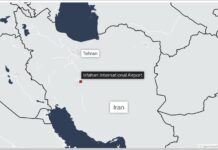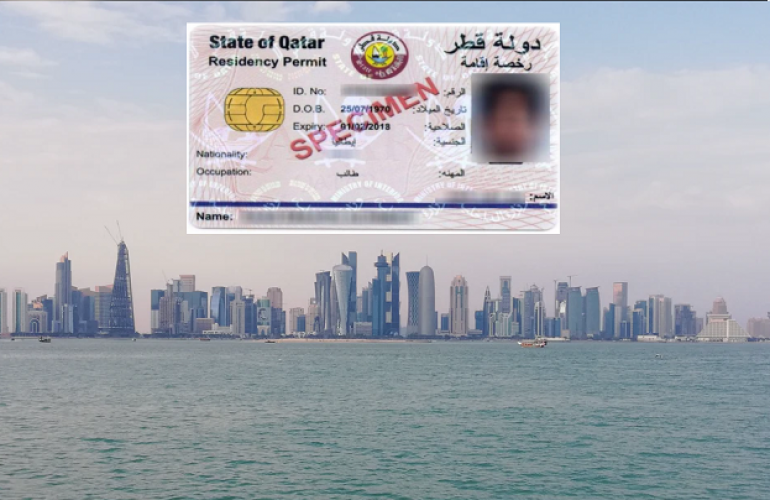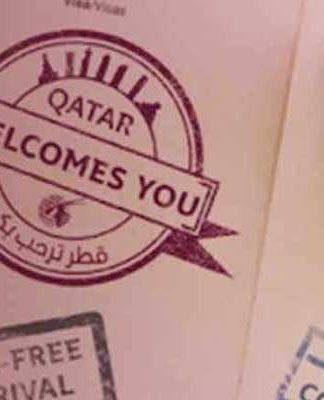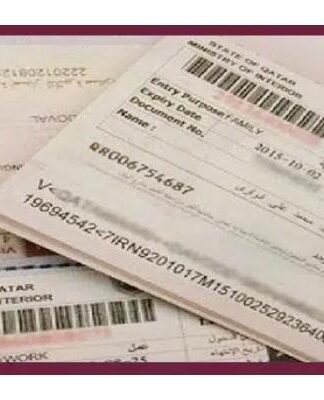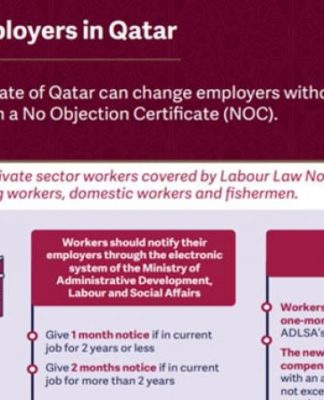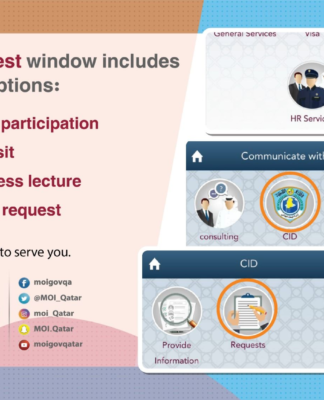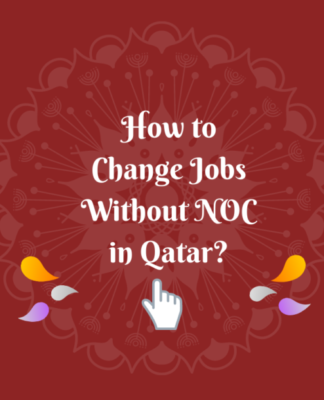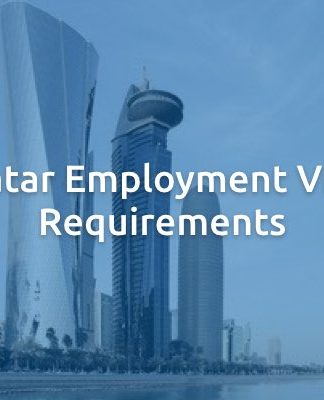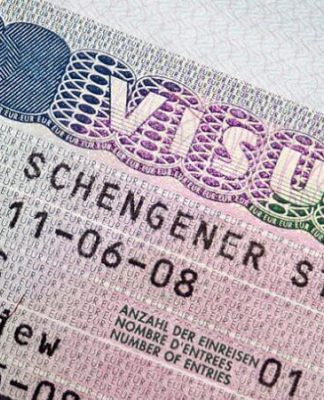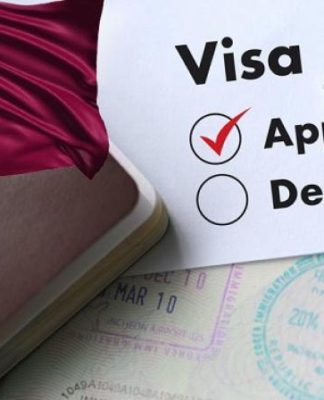RESIDENCE PERMIT GUIDE FOR EXPAT WORKERS IN QATAR
Mar 2021
If you want to work and live in Qatar, a Work Residence Permit (commonly referred to as an RP), is required for you to stay and continue your job. You need a Qatari employer (company or individual) as your sponsor.
You will then be granted a Qatar ID (QID) once you get approval for residency or work in the country.
Start applying for hr consultant jobs in Qatar to find an employer who will sponsor you to work here.
Here are some frequently asked questions and answers to serve as your guide on Residence Permits in Qatar.
The below points are based on Al Meezan, Qatar’s Legal Portal. It provides details on the regulations set by the State of Qatar about the Residence of the Expatriates in the State of Qatar:
Why is it essential to have an RP?
Having an RP allows you to:
- personally sponsor your immediate family members (spouse, sons, daughters) to join them and live in Qatar (see Family Residence Visa below). This will serve as one of your requirements to bring your family to live with you in Qatar.
Family Residence Visa – permission for your family to stay
Expatriates can sponsor their immediate family members. Every family member, including infants, must have an individual Family Residence Visa. The Visa can be purchased for a period of 1-5 years and is stamped in each family member’s passport.
Applicants are required to submit a number of documents, including authenticated marriage and birth certificates, no-objection letter, and salary certificate from their employer.
Registering as a Working Woman
Meanwhile, your wife can work in Qatar, but after registering in the Recruitment Department at the Ministry of Administrative Development, Labor and Social Affairs and getting a job from hr consultant jobs in Qatar.
A woman who is in Qatar on family sponsorship and who has approval from her husband may register to work without obtaining a separate work permit. Applicants may visit the Labor Department to complete the application process.
Can the expat apply for residency for their family members?
16 Article
Residence permits are granted to the spouse of the residence holder, to male children up to the age of twenty-five who have not completed their university education, and to unmarried daughters.
The permit holder’s parents may be granted residence permits at the discretion of the Minister or his appointed deputy.
Subject to the provisions of the two preceding paragraphs, the requirements in respect of the granting of residence permits shall be determined by ministerial resolution.
Conditions for Bringing Your family to live with you during your stay in Qatar
It is possible for you as a worker after acquiring a residency per- mit to apply for bringing your spouse and underage children, male children who did not finish their college up to 25 years, and unmarried daughters for staying with you in Qatar on your sponsorship. If you have appropriate accommodation and your salary12 is enough to support them during their stay in Qatar – minimum wages decided by the Permanent Immigration Committee at the Ministry of Labor.
It is possible for a working woman to apply to the interior minister to bring her spouse, the minister may consent her application if he finds it justifiable.
What are the residency terms for children of expat permit holders?
17 Article
A residence permit may be applied for within (60) sixty days of the date of birth or the date of entering the country in respect of a child born to an expatriate whose family has obtained residence permits.
If the child was born outside the country and one or both parents have a valid residence permit, the child shall be permitted to enter the country within two (2) years of its birth.
Based on the National Human Rights Committee Workers’ Booklet, here are some guidelines about Expats’ Residence Permits:
- access many services
- apply for further permits and licenses
- sign a rental accommodation agreement
- apply for a loan, and the list goes on.
Can I obtain a residence permit without a recruiter?
The Minister of Interior may issue visas and grant residence permits without a recruiter for the following categories:
– Investors subject to the provisions of the law regulating the investment of non-Qatari capital in economic activity.
– Owners and beneficiaries of property and residential units, in accordance with the provisions of the law governing the own- ership and beneficial enjoyment of non-Qataris of real estate and housing units.
– Any other categories determined by a decision of the Council of Ministers.
In order to issue the residence permits for the said categories, the documents supporting the application must be submitted and the applicant must have a good reputation. The term of residence shall be five years and may be renewed for a period or other similar periods.
For the above-mentioned categories, residence may be grant- ed without the requirement of employment to the spouse, chil- dren and parents of the residence holder.
The above categories can leave the country during the validity period of residence without exit permit.
The competent authorities can cancel your residence permit in the following cases:
– If you prove that you obtained the residence permit based on incorrect information or documents.
– If the continuation of your stay in the State threatens its secu- rity and safety at home or abroad or harms its national econo- my or public health or public morals.
– If the purpose for which you are granted the residence permit has been violated or has become void without obtaining the permit thereof from the competent authorities.
What your employer must do as soon as you come to Qatar?
Refer to the competent authority within 30 days from the date of entering the country to complete the residence permit procedures.
The employer (the recruiter) is obliged to finalize your residence permit or renewal process within a period not exceeding 90 days. He must give you your passport after the completion of the said procedures.
It is typically the responsibility of the employer to handle all paperwork required to obtain the Residence Permit on behalf of the expatriate.
When expatriates first enter Qatar, their employer will arrange for a temporary visa which is then converted to a Work Residency Permit – a process that typically takes 2-4 weeks and sometimes longer. Applicants may not leave the country during the period of visa-to-permit conversion.
Who will process the formalities for the required residence permit of an expat?
9 Article
Any Expatriate who is resident in the State of Qatar shall obtain a permit from the appropriate competent authority.
The sponsor shall comply with the formalities for the required residence permit and the renewal thereof, provided that the application for renewal is made within a period that shall not exceed ninety days from the date of the expiry of the said permit.
The sponsor shall deliver to the sponsored person his passport or travel document after finalizing the residence formalities or after applying for the renewal thereof.
What if I don’t have an RP?
An expatriate shall leave if he does not obtain a residence permit.
He must also leave within ninety (90) days if the residence permit is terminated, canceled for any reason, or the purpose for which he entered the country is not valid anymore.
11 Article
An Expatriate permitted to enter or reside in the country for a specific purpose or to work for a specific undertaking shall not deviate from the purpose for which he is permitted to enter or reside and shall leave the country within ninety (90) days after such purpose or business is completed or otherwise in the case that the residence is cancelled for any reason whatsoever.
What if my Qatar ID has expired?
According to Discover Qatar, if your QID has expired while you have been outside of Qatar you may be permitted to re-enter the country to renew your QID, after you have been approved to travel and have successfully completed your mandated quarantine period.
Who should renew your RP?
Work Residence Permits are renewed each year by the expatriate’s employer or sponsor.
What will happen if I don’t bring with me my QID?
All expats who have been issued with residence permits should always carry their Residence Permit ID Cards or proof of residence and should produce it whenever asked by authorities concerned. Those who violate the rule will be fined up to QR10,000.
What if the sponsor proves to be abusive or has not provided required sponsorship assistance to the expat?
12 Article
Should any legal action be pending between a sponsor and an employee who is an Expatriate, the Minister or his appointed deputy may temporarily transfer the employee to another employer.
The Minister or his appointed deputy may approve the transfer of the residence of an Expatriate employee who is not subject to the Labour Law to another employer in the case that the sponsor in question proves to be abusive or if public interest so requires.
An employee who is subject to the Labour Law may on request, for the same reasons, subject to the approval of the Minister or his appointed deputy and the approval of the Ministry of Labour, have his residence transferred to another employer.
How long can an expat remain outside of Qatar?
13 Article
An Expatriate who has been granted permission to reside in the country may not remain out of the country for more than six months continuously unless, before leaving or before one year has elapsed, he/she obtains a return permit from the competent authority on payment of the prescribed fees, provided no more than sixty days have elapsed since the expiration of his/her residence permit. The Minister or his appointed deputy may waive this period.
What are the rules for terminated employees or expats?
14 Article
Should an employee been terminated of the employment pursuant to the provisions of Article 61 of the Labor Law, the provisions of the laws governing the State personnel, or of any other law, and the employee decides not to appeal the decision before the court of jurisdiction or if such appeal is unsuccessful, he may not return to the country within (4) four years from the date of departure.
Can expats work part time with another sponsor?
15 Article
No natural or juristic person may allow expatriates recruited as employees to work for any other entities, nor may they employ staff who are not thus sponsored.
The competent authority may, exceptionally, allow the sponsor to second its Expatriate employees to another employer for no more six (6) months, with the arrangement renewable for a similar period.
Subject to the written approval of his sponsor, the competent authority may allow such Expatriate to work on a part-time basis for a different employer at times other than the designated working hours of his original employer.
Find full time or part time hr consultant jobs in Qatar to earn more while staying in the country.
In all cases, the approval of the Ministry of Labor must be sought for the categories subject to the provisions of the Labor Law. Permits may not be assigned for third parties nor may they be disposed of or circulated by third parties in any other way whatsoever, whether or not such assignment is against consideration.
What are the responsibilities of a sponsor for an expat whose residence permit has expired, cancelled or if he/she has been issued with a deportation order?
The recruiter is obliged to bear the expenses of your deportation to your country (the price of the ticket), upon the expiry of your residence permit or cancellation or the issuance of a deportation order.
If it is proven that you were working for another party in violation of the law, that party will bear the expenses of your deportation. In the event that it is not possible to know this party, you (the worker) shall bear these expenses. If you do not have funds within the country and are unable to pay them, the recruiter will bear these expenses.
The Ministry may, if the recruiter is a public servant and has breached his/her obligations towards the worker, shall collect the expenses of deportation from the salaries and entitlements of the recruiter, in coordination with his employer.
The recruiter shall be responsible for the expenses of burying the body of the deceased expatriate in the assigned burial grounds in the State, whatever cause of death.
In the event that one of the heirs of the deceased or any other institution requests the repatriation of the body outside the State, the recruiter shall bear these costs to the country of or- igin or the permanent place of residence of the deceased expatriate.
What are the duties of the recruiter (employer) in case you leave work?
The recruiter shall inform the competent authority within four- teen days from the date of leaving the work, or refrain from leaving the country after the revocation of your license or the end of your residence permit, or the expiry of the permit and the passage of ninety days without renewal.
He/she must also notify the competent authority at the end of the period of your visit or the purpose for which you are authorized to enter.
Other Helpful Information about Residence Permits or Qatar IDs:





